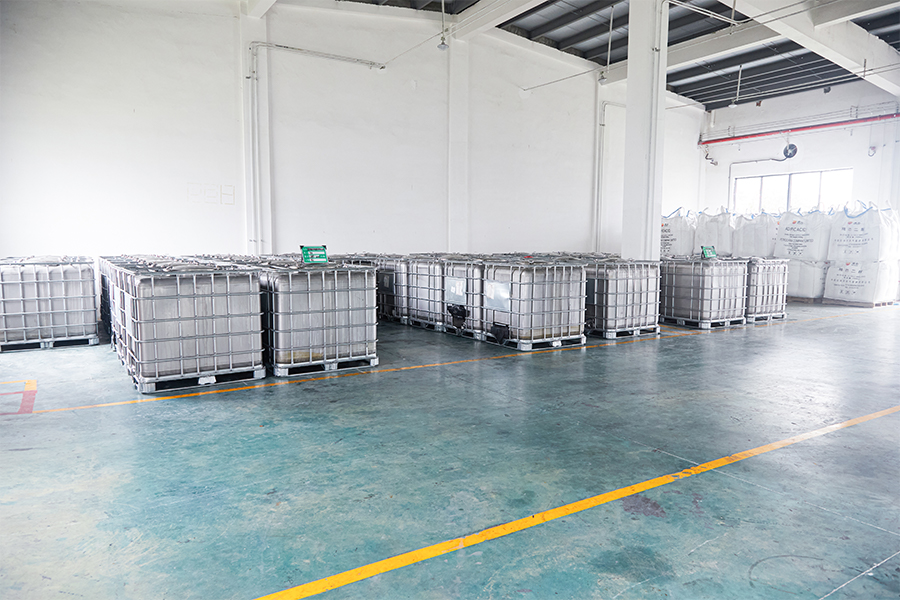Corrosion is a natural process that causes the gradual destruction of materials, especially metals, through chemical reactions with their environment. Factors such as moisture, salt, and air pollutants accelerate the process, causing rust and deterioration of the material. Corrosion-resistant coating is designed to act as a barrier between the material and these external elements, preventing contact and reducing the risk of corrosion.
For a plastic paint manufacturer, creating coatings that offer effective corrosion resistance requires understanding the unique challenges posed by different environments. For instance, a coating that works well in marine environments may not be effective in industrial settings where heavy machinery and chemicals are involved. At Chenchong New Materials, our extensive range of coatings includes solutions tailored for various industrial applications, including acrylic, polyester, and fluorocarbon coatings.
Types of Corrosion-Resistant Coatings
At Chenchong New Materials, we offer a variety of corrosion-resistant coatings, each designed to protect against specific environmental threats. Here are some of the key types we manufacture:
1. Acrylic Coatings
Acrylic coatings are known for their ability to withstand weathering and UV radiation, making them ideal for outdoor applications. They provide a smooth, durable finish that resists cracking and fading, ensuring long-lasting protection for aluminum and steel surfaces.
2. Polyester Coatings
Polyester coatings are versatile and affordable. With options ranging from low-temperature polyester (LTPE) to high-weathering polyester (HDPE), these coatings are ideal for areas with moderate environmental exposure. Our high-weathering polyester coatings provide up to 15 years of weather resistance.
3. Fluorocarbon Coatings (PVDF and FEVE)
For aggressive environments that demand high performance, fluorocarbon coatings such as PVDF and FEVE offer unparalleled protection against corrosion, UV degradation, and pollution.

Benefits of Corrosion-Resistant Coatings in Industrial Durability
Now that we’ve looked at the types of coatings, let’s examine the key benefits of using corrosion-resistant coatings in industrial applications:
1. Extended Equipment Life
By protecting surfaces from rust and corrosion, these coatings significantly extend the lifespan of equipment, reducing the frequency of repairs or replacements. This is particularly important in industries like construction, marine, and transportation, where downtime can be costly.
2. Reduced Maintenance Costs
With corrosion-resistant coatings, the need for constant maintenance is minimized. Equipment and materials remain in serviceable condition for longer periods, resulting to reduced repair and maintenance costs.
3. Enhanced Aesthetic Appeal
In addition to offering functional protection, many corrosion-resistant coatings also enhance the aesthetic appeal of surfaces. For example, coatings with anti-scratch, mirror, or brushed finishes add a polished look to industrial equipment and architectural elements, which is important for maintaining the visual integrity of buildings and infrastructure.
Industries That Benefit from Corrosion-Resistant Coatings
Various industries rely on corrosion-resistant coatings to maintain the integrity of their materials and machinery. Some of the key sectors that benefit from these coatings include:
1. Construction and Architecture
Buildings and structures exposed to outdoor elements are particularly vulnerable to corrosion. Plastic paint manufacturer products like fluorocarbon coatings ensure that materials such as aluminum and steel retain their strength and aesthetic appeal for many years.
2. Marine Industry
The marine environment is one of the harshest for materials, with saltwater, humidity, and UV radiation constantly wearing down surfaces. Coatings like HDPE and fluorocarbon are designed to resist the damaging effects of the sea, ensuring that ships, offshore platforms, and other marine equipment remain durable and functional.
3. Automotive and Aerospace
Both the automotive and aerospace industries require materials that are not only lightweight but also resistant to corrosion. Coatings provide an additional layer of protection to vehicles, airplanes, and parts exposed to harsh conditions, ensuring safety and performance.


 English
English русский
русский Español
Español Português
Português عربى
عربى
